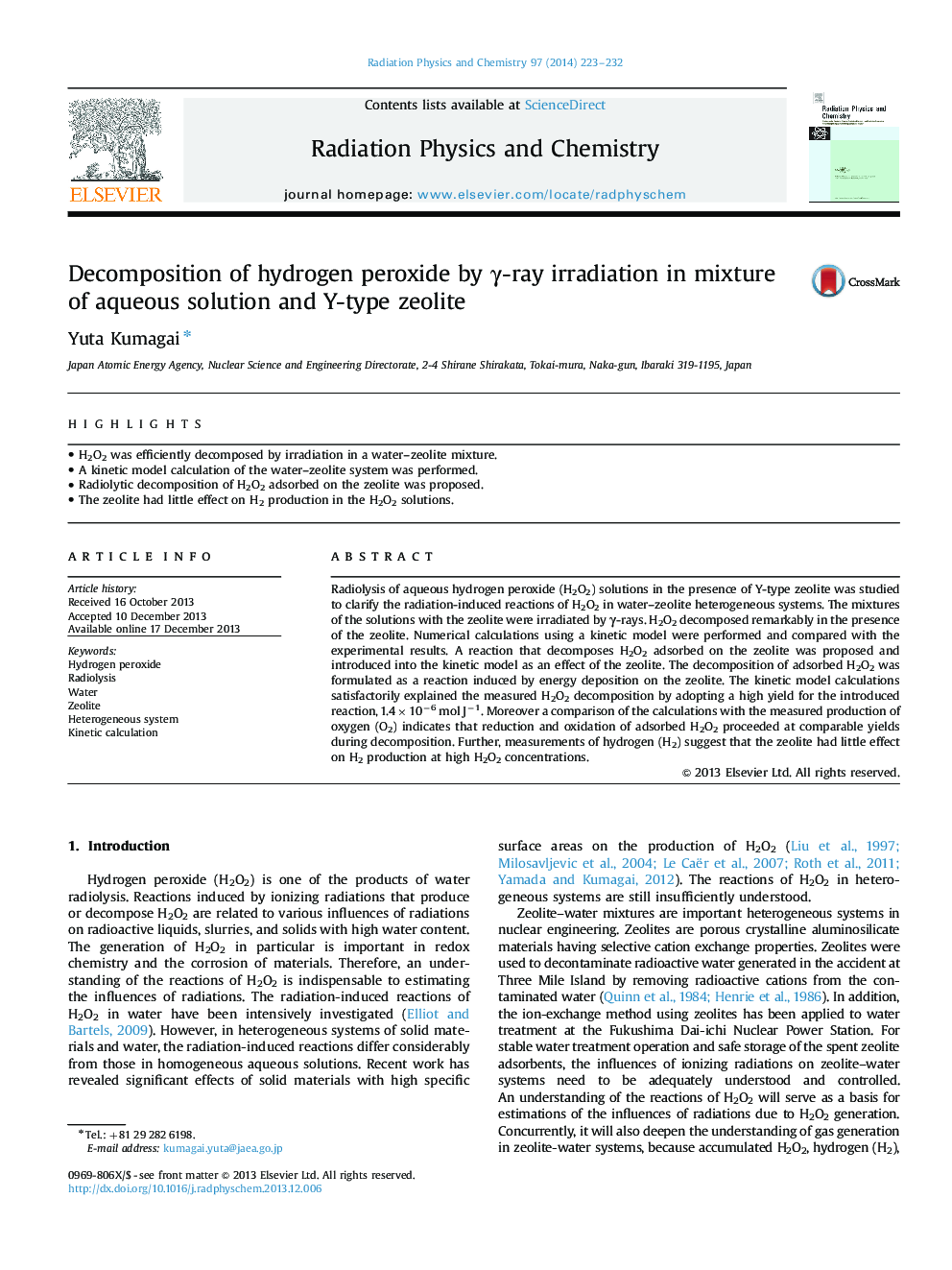| Article ID | Journal | Published Year | Pages | File Type |
|---|---|---|---|---|
| 1886168 | Radiation Physics and Chemistry | 2014 | 10 Pages |
•H2O2 was efficiently decomposed by irradiation in a water–zeolite mixture.•A kinetic model calculation of the water–zeolite system was performed.•Radiolytic decomposition of H2O2 adsorbed on the zeolite was proposed.•The zeolite had little effect on H2 production in the H2O2 solutions.
Radiolysis of aqueous hydrogen peroxide (H2O2) solutions in the presence of Y-type zeolite was studied to clarify the radiation-induced reactions of H2O2 in water–zeolite heterogeneous systems. The mixtures of the solutions with the zeolite were irradiated by γ-rays. H2O2 decomposed remarkably in the presence of the zeolite. Numerical calculations using a kinetic model were performed and compared with the experimental results. A reaction that decomposes H2O2 adsorbed on the zeolite was proposed and introduced into the kinetic model as an effect of the zeolite. The decomposition of adsorbed H2O2 was formulated as a reaction induced by energy deposition on the zeolite. The kinetic model calculations satisfactorily explained the measured H2O2 decomposition by adopting a high yield for the introduced reaction, 1.4×10−6 mol J−1. Moreover a comparison of the calculations with the measured production of oxygen (O2) indicates that reduction and oxidation of adsorbed H2O2 proceeded at comparable yields during decomposition. Further, measurements of hydrogen (H2) suggest that the zeolite had little effect on H2 production at high H2O2 concentrations.
